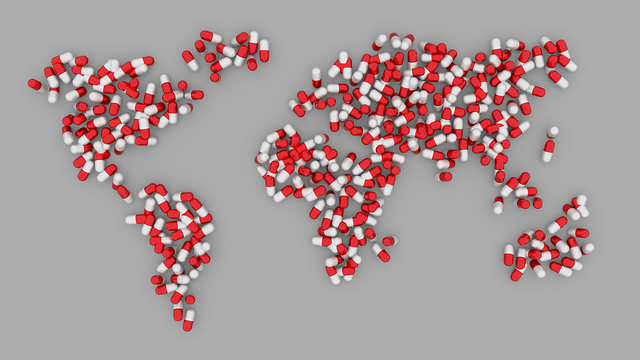In the heart of New York’s Hudson Valley, Rockland County grapples with substance use disorder (SUD) like many other communities across the nation. This comprehensive guide explores various facets of SUD recovery in Rockland, from understanding the root causes to navigating available rehabilitation programs. We delve into the significance of early intervention, what to expect during and after rehab, and building support systems for lasting recovery. Discover resources tailored to help individuals reclaim their lives.
- Understanding Substance Use Disorder: A Comprehensive Look
- The Importance of Early Intervention in Rockland County
- Types of Drug Rehabilitation Programs Available
- What to Expect During and After Rehab
- Support Systems and Community Resources for Long-Term Recovery
Understanding Substance Use Disorder: A Comprehensive Look

Substance Use Disorder, often referred to as SUD, is a complex and chronic condition that affects individuals across all demographics. It’s characterized by an intense desire or compulsion to use a particular substance, despite negative consequences. This disorder encompasses a range of behaviors, from recreational drug use to full-blown addiction. The brain plays a pivotal role in SUD; repeated substance use can alter neural pathways, leading to long-term changes in brain function and structure. These alterations impact decision-making, impulse control, and reward processing, making it challenging for individuals to resist the urge to use.
Recovery from Substance Use Disorder is a multifaceted process that requires understanding, support, and access to effective treatment options. It’s important to recognize that recovery is a personal journey, and what works for one person might not work for another. Treatment approaches may include therapy, medication-assisted recovery, support groups, and lifestyle changes. By addressing the underlying causes of SUD and providing individuals with the tools to manage cravings and triggers, these comprehensive strategies aim to facilitate lasting recovery and improve overall well-being.
The Importance of Early Intervention in Rockland County

Early intervention plays a pivotal role in addressing Substance Use Disorder (SUD) recovery in Rockland County, NY. Recognizing and acting upon signs of substance abuse early can significantly alter the trajectory of an individual’s life, moving them towards a path of healing and rehabilitation. By implementing timely interventions, community resources can reach those struggling with SUD before it progresses to more severe stages. This proactive approach is crucial as it increases the chances of successful recovery and reduces the long-term impact on mental health, relationships, and overall well-being.
Rockland County’s focus on early intervention strategies ensures that individuals in need receive support and guidance at a critical juncture. Local programs and facilities are equipped to identify risk factors and provide appropriate care, offering a range of services from counseling to educational programs. Early intervention not only benefits the individual but also has a positive ripple effect on families and the community as a whole, fostering an environment that promotes health and recovery.
Types of Drug Rehabilitation Programs Available

In addressing Substance Use Disorder Recovery, Drug Rehab Rockland County, NY offers a range of tailored programs to cater to diverse needs. These include inpatient and outpatient rehabilitation centers, each designed to provide comprehensive care that supports individuals through every stage of their recovery journey. Inpatient programs offer intensive, round-the-clock treatment, ideal for those requiring close monitoring and structured environments to overcome addiction. Outpatient options, on the other hand, are suited for individuals who need flexibility while still receiving vital support and counseling services.
The rehabilitation programs focus on evidence-based therapies, behavioral modifications, group therapy sessions, and aftercare planning to ensure long-term success in recovery. These methods aim to address not only the physical aspects of substance abuse but also the underlying psychological and social factors contributing to Substance Use Disorder. By combining medical supervision with therapeutic interventions, these programs foster a holistic healing process that empowers individuals to reclaim their lives free from addiction.
What to Expect During and After Rehab

During rehab, individuals can expect a comprehensive approach to substance use disorder recovery. The initial phase often involves medical detox to safely manage withdrawal symptoms, followed by individual and group therapy sessions designed to address the underlying causes of addiction. Participants will learn coping mechanisms, stress management techniques, and relapse prevention strategies in a structured environment. Activities like counseling, art therapy, or support groups help foster personal growth, self-awareness, and emotional well-being.
Post-rehab, sustained recovery relies on ongoing support and behavioral changes. Individuals are encouraged to maintain regular attendance at aftercare sessions, participate in alumni programs, and join peer support groups like Narcotics Anonymous. Building a strong support network outside of rehab is vital for long-term success. Continued focus on personal goals, healthy habits, and stress management tools will reinforce the progress made during rehab, enabling individuals to sustain their substance use disorder recovery journey effectively.
Support Systems and Community Resources for Long-Term Recovery

Support systems play a pivotal role in long-term substance use disorder recovery. After completing an initial rehab program, individuals often benefit from continued care and mentorship to maintain their sobriety. Community resources like support groups, such as Alcoholics Anonymous or Narcotics Anonymous, provide peer-to-peer connections, offering a safe space for sharing experiences and strategies to stay clean. These groups foster a sense of belonging, which is crucial for preventing relapse.
Additionally, local community centers, churches, and non-profit organizations often host educational workshops, wellness activities, and counseling services tailored for those in recovery. Accessing these resources not only helps individuals navigate the challenges of everyday life without drugs or alcohol but also connects them to a network of support that can enhance their overall well-being and increase their chances of lasting recovery.

